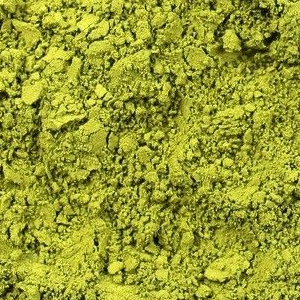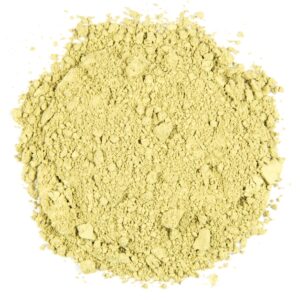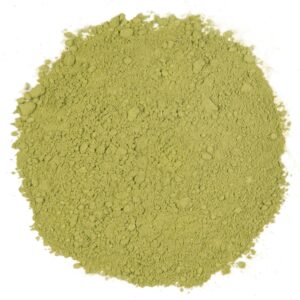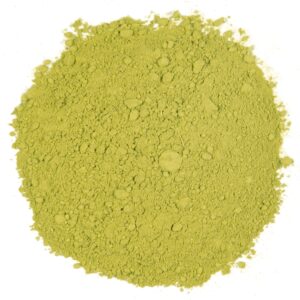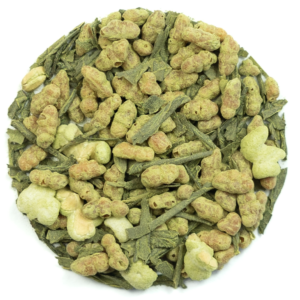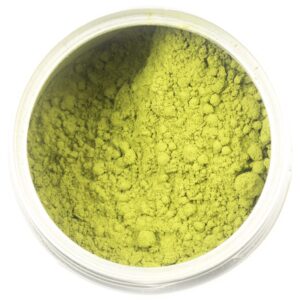Matcha Tea
Matcha Tea is one of the most popular and health beneficial types of Tea available today. Though an age-old infusion, the latest scientific research has led to a dramatic increase in sales.
It tastes great, too, going above and beyond to impress all those who drink it. The Kent and Sussex Tea and Coffee stock the best Matcha Tea around, which we pack fresh to order here at our Pluckley-based factory.
Showing all 9 results
-

Bamboo Matcha Tea Spoon
£3.85 Add to basket -
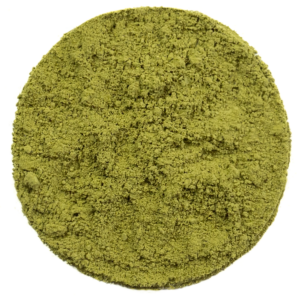
Taishan Matcha Tea
From £4.15— or subscribe and save 10%Select options This product has multiple variants. The options may be chosen on the product page -
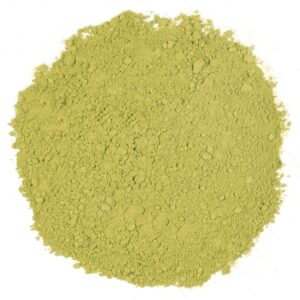
Peppermint Matcha Tea
From £6.50— or subscribe and save 10%Select options This product has multiple variants. The options may be chosen on the product page -
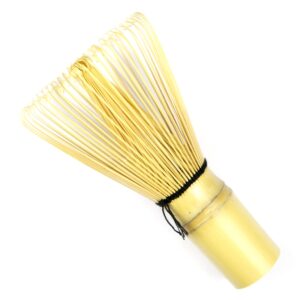
Matcha Tea Whisk
£14.28 Add to basket
What is Matcha Tea?
Loose Matcha Tea is a shade-grown Green Tea that has been ground into a fine powder. This unique processing method means that it reportedly contains 137 times more antioxidant strength than its “regular” counterparts, thereby promoting Matcha Tea Benefits. The practice of creating it dates back to 17th century Japan when it became known for the Matcha Tea ceremony.
To state that there are differences between this and Green Tea would, perhaps, be somewhat of an understatement. Despite both varieties coming from the same Camellia sinensis (Tea) plant, when one puts Matcha Tea vs Green Tea, the distinctions are clear. This indeed extends to the powder’s flavour and character.
What Does Matcha Tea Taste Like?
Does it taste like Green Tea? The fact of the matter is that, technically, it is Green Tea. However, few would argue that it boasts individual traits to standard Loose Leaf Tea varieties.
When brewed to perfection, it has traditional grassy notes with vegetal hints and astringent undertones. Though somewhat of an acquired taste, it nevertheless has much to offer the palate.
Here’s where things get a little more complicated. While so-called “Authentic” Matcha Tea is Green Tea, the industry has recently started marketing others such as Kenya, a White Tea, and Organic Yerba Mate Matcha, a Herbal Tea.
Each one is unique in its own right, including, of course, their respective tasting notes, but it’s up for debate what their accurate classification should be.
Matcha Tea Caffeine Amount
Caffeine is a stimulant that exists in around sixty plants, from Camellia sinensis to Coffea (Coffee) to Ilex Paraguariensis (Yerba Mate) to Theobroma cacao (Cocoa or Chocolate). This should answer your question, “Does it have caffeine?” once and for all. But the question about how much is within the leaves remains unanswered.
Depending on factors such as brewing times and type, the average serving will contain anywhere from 30-mg to 70-mg of caffeine. Such are the varying levels that it’s challenging to determine how many times a day you should drink Matcha Tea. The risk is caffeine overconsumption, however rare it might be, so we would recommend that you monitor your intake.
Matcha Tea Health Benefit
It turns out that it does more than get you out of bed in the morning. Evidence indicates that Japanese Matcha Tea benefits the mind, body and soul in a plethora of ways due to its remarkable antioxidant strength.
Antioxidants, notably Epigallocatechin gallate (EGCG), combat free radicals in the body. This ultimately reduces the risk of developing a multitude of chronic conditions.
But there’s more. According to a study published in the International Journal of Sport Nutrition and Exercise Metabolism, it has an almost unparalleled ability to promote weight loss.
Meanwhile, according to research from the Journal of Investigative Dermatology, its anti-inflammatory properties improve the skin’s vitality. There are also claims that it aids digestion and provides mild depression relief.
How to Make Matcha Tea
Making Matcha Tea is easier than it looks at first glance. The most important thing is to have the proper utensils to hand. You’ll need a Bamboo Tea Spoon to measure out the extract amount of Tea Powder required.
Also vital is a Matcha Tea Whisk for helping to create the right consistency while brewing. All that’s left, then, is to follow our straightforward step-by-step guide below:
1, Add Macha Green Tea Powder into a Cup or Bowl.
2, Measure out 1-2 scoops per person with a Bamboo Tea Spoon.
3, Boil Fresh Water and Pour it Over the Powder.
4, Make sure it has cooled slightly to 80-90°C to avoid burning it.
5, Whisk the Infusion Until Frothy.
6, Use your Matcha Tea Whisk to reach the right consistency.
7, Consider Adding More Warm Water.
8, The alternative is to make a Green Tea Latte Recipe.
How to Serve: Best served without additions.

 Loose Leaf Tea
Loose Leaf Tea Pyramids
Pyramids Tea Bags
Tea Bags Africa
Africa Assam
Assam Ceylon
Ceylon Chinese
Chinese Darjeeling
Darjeeling European
European Indian
Indian Japan
Japan Nepal
Nepal South East Asia
South East Asia Ayurveda Tea
Ayurveda Tea Black Tea
Black Tea Chai Tea
Chai Tea Flowering Tea
Flowering Tea Fruit Tisanes
Fruit Tisanes Green Tea
Green Tea Herbal Tea
Herbal Tea Matcha Tea
Matcha Tea Oolong Tea
Oolong Tea Organic Tea
Organic Tea Pu erh Tea
Pu erh Tea Rooibos Tea
Rooibos Tea White Tea
White Tea Asian Coffee
Asian Coffee Caribbean Coffee
Caribbean Coffee Central American Coffee
Central American Coffee South American Coffee
South American Coffee Coffee Blends
Coffee Blends Decaffeinated Coffee
Decaffeinated Coffee Espresso Coffee
Espresso Coffee Ethically Sourced Coffee
Ethically Sourced Coffee Flavoured Coffee
Flavoured Coffee Organic Coffee
Organic Coffee Single Origin Coffee
Single Origin Coffee Chocolate 1
Chocolate 1 Chocolate 2
Chocolate 2 Chocolate 3
Chocolate 3 Chocolate 4
Chocolate 4 Chocolate 5
Chocolate 5 Chocolate 6
Chocolate 6 Chocolate 7
Chocolate 7 Chocolate 8
Chocolate 8 Chocolate 9
Chocolate 9 Loose Tea Filters
Loose Tea Filters Tea Accessories
Tea Accessories Tea Bricks
Tea Bricks Tea Caddies
Tea Caddies Tea Caddy Spoons
Tea Caddy Spoons Tea Gift Ideas
Tea Gift Ideas Tea Infusers
Tea Infusers Tea Strainers
Tea Strainers